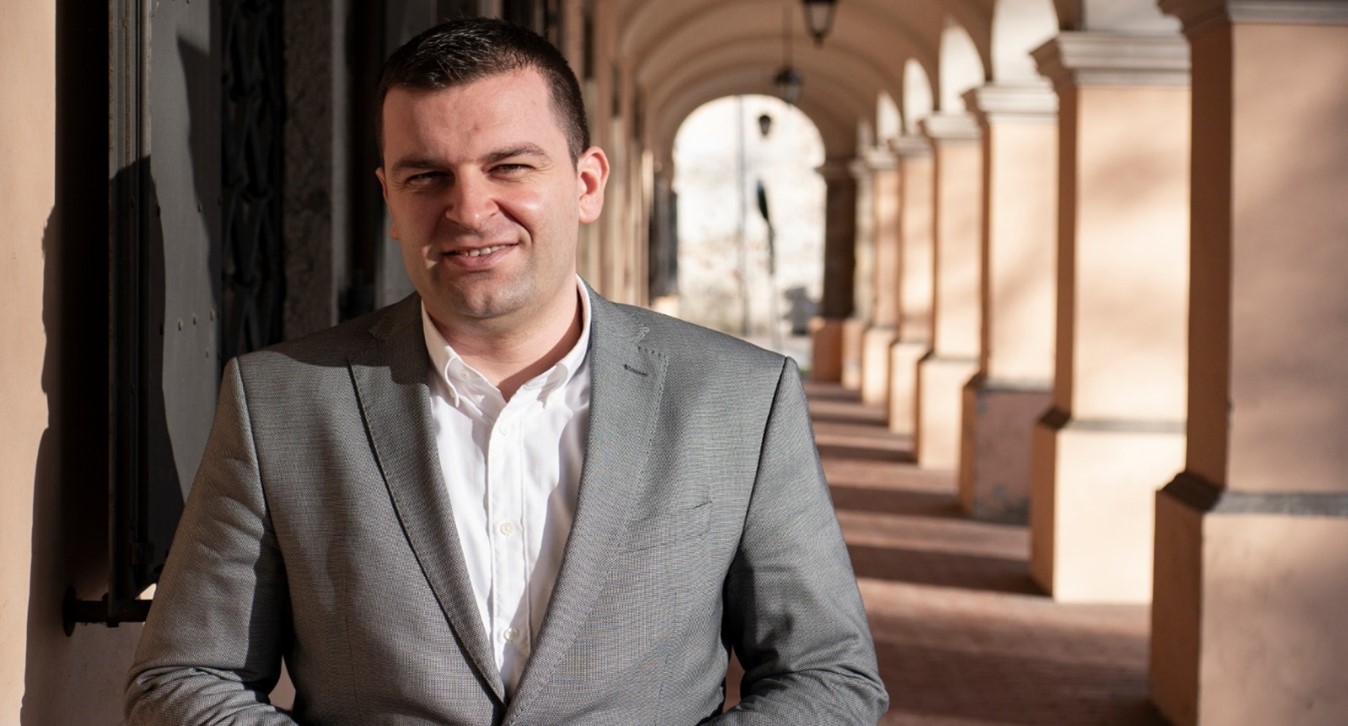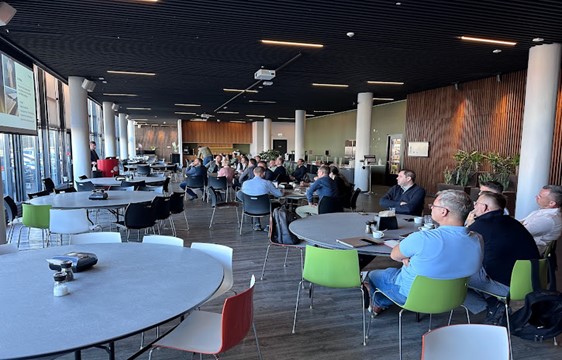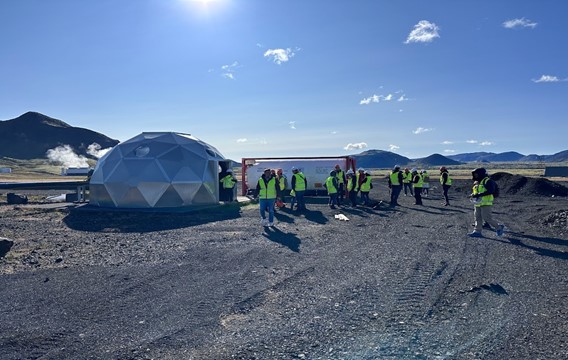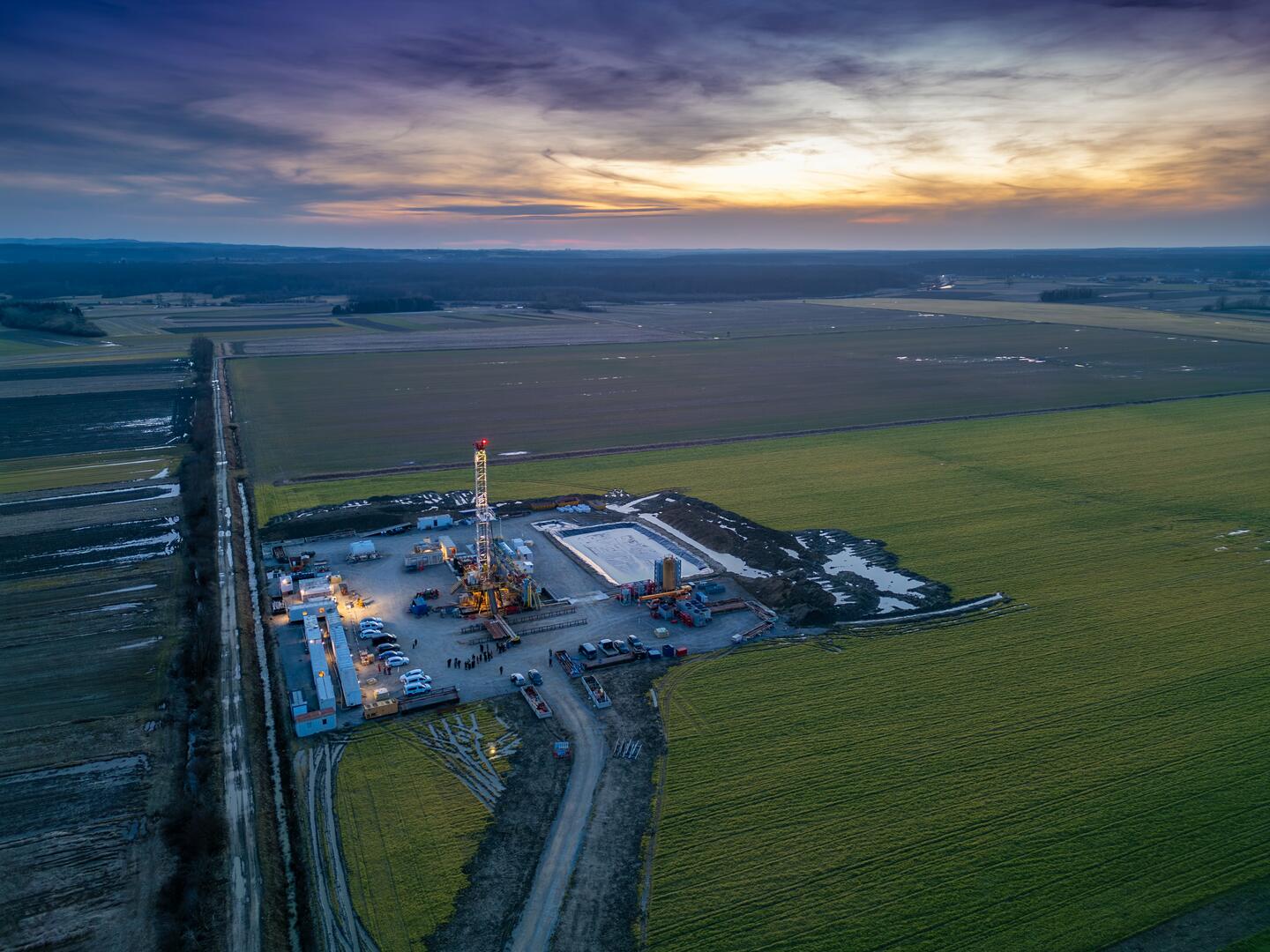Geothermal power has so far been an untapped potential in Croatia. Receiving funds from both the EEA Grants and the EU, and with an Icelandic partner onboard, this project showcases the potential of geothermal energy as a clean, renewable and sustainable energy source.
Geothermal energy, derived from the Earth's heat, presents an attractive solution to the world's increasing energy demands. It offers a stable, reliable, and continuous power supply, unlike other renewable sources such as solar or wind, which are dependent on weather conditions. Through initiatives like these, Croatia is positioning itself as a leader in the transition to renewable energy sources, paving the way for a future that is not only greener but also more energy secure.
Bjelovar will be the first city in Croatia to use geothermal energy for its needs. This is a project that can change Croatia and encourage other cities to follow in our footsteps. Dario Hrebak, Mayor of Bjelovar

Icelandic partner onboard
International cooperation is key in the transition towards cleaner and more sustainable forms of energy. The City of Bjelovar is working with two partners in this project; the local company Terme Bjelovar d.o.o and the Icelandic engineering company EFLA.
The project of geothermal drillhole is costing 4,4 million euros and is co-financed with 1,3 million euros by Iceland, Lichtenstein and Norway through the EEA Grants, with one million euros by the Croatian Ministry of Regional Development and EU Funds. The rest is financed by the City of Bjelovar.
This collaboration fosters knowledge sharing and technological innovation, further accelerating the development of geothermal energy in the region.
“The temperature gradient meaning the geothermal potential in the Pannonian region of Croatia is much higher than the European average. This is known due to numerous wells drilled in the past for the purpose of oil and gas exploration. The fact that Croatia has well educated specialists in the mining-, geological- and petroleum sector plus the availability of geological and physical data could therefore help the country in achieving its goals towards becoming a low-carbon economy”, says Mr. Hafsteinn Helgason, Head of Business Development and R&D at EFLA Consulting Engineers, the Icelandic partner.

The project will increase the energy production from renewable sources, reduce CO2 emissions and increase the security of supply. The infrastructure development, construction, and tapping of geothermal sources at the Korenovo GT-1 well for geothermal energy exploitation are set to be completed within the next few weeks. The energy produced will be used for both heating and for commercial use in the Korenovo Business Zone.
“Good and fruitful cooperation”
“During our meetings in Croatia and on working sessions in Iceland with our project partners and clients from Croatia, the strong motivation and intention of the partners to work in a professional manner on this costly and partly risky journey became clear. The Croatians are quick learning people and we at EFLA Consulting Engineers are convinced that our expertise and experience in the deep geothermal sector will lead to good and fruitful cooperation and capacity building“, says Mr. Helgason.

The end-beneficiaries of this project are users of the sport and recreation complex services, the businesses in the Korenovo Business Zone and farmers who will use geothermal energy for production. And all residents int the local area will benefit from better air quality, less CO2 emissions, and economic development.
“A turning point” for Bjelovar
“In the next few years, 2000 people should be employed in the Korenovo business zone, and if we add the fact that Bjelovar is the city with the lowest taxes in Croatia, it is the ideal oasis for investors. This drillhole will be a turning point in Bjelovar’s economy. In the future, in ten years’ time, the plan is for Bjelovar to become a completely energy sustainable city. It would be achieved with about five new drillholes”, says Mayor Hrebak.
As the first phase of the Bjelovar project nears completion, anticipation grows for the results of the subsequent data analysis. If successful, this project could pave the way for similar initiatives across Southeast Europe, reinforcing the potential of geothermal energy as a viable and sustainable solution to the world's growing energy needs.
With increasing environmental concerns and reduced fossil fuel reserves, this project for geothermal energy production in Bjelovar represents a hope for the future. For our ability to harness the forces of nature to create more sustainable energy in the years to come.
The Bjelovar project is a testament to Croatia's commitment to reduce its reliance on fossil fuels, thereby contributing to global efforts to combat climate change.
Imports 50% of the energy demand
The project is part of the EEA Grants Energy Programme in Croatia, where the overall aim is less carbon-intensive energy and increased security of supply. This will support the efforts of the National Strategy and will facilitate achieving energy targets of the Republic of Croatia, which pledged to implement EU policies in the field of energy efficiency and renewable energy sources in order to reach the European “20-20-20” targets2. The Republic of Croatia met part of this target as early as 2016 regarding the share of renewable energy sources and reducing the emissions of greenhouse gases, which shows good progress in achieving the remaining target.3
Even though each country is responsible for its own security of power supply, it is a common issue of all European states, and only through joint focused activities can the consequences arising from dependence on imports be minimised. Today, the Republic of Croatia imports around 50% of power to meet its energy demand, even though it has the conditions for the construction of hydroelectric power plants, wind farms, and other renewable energy sources.

